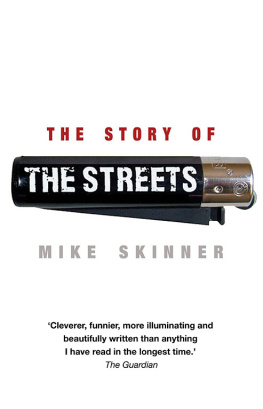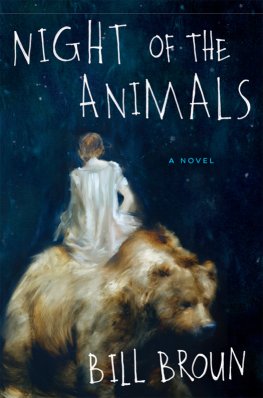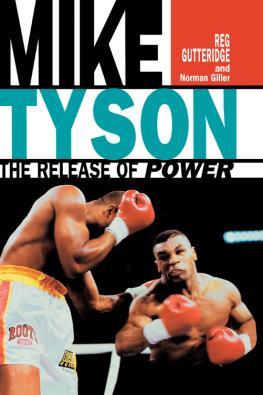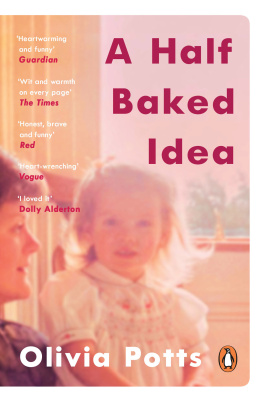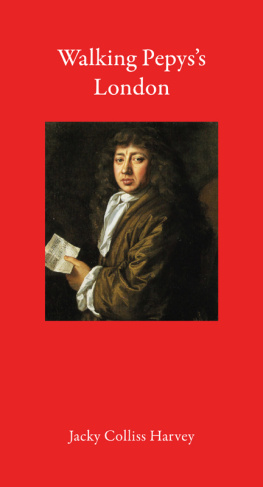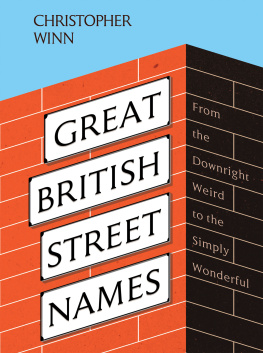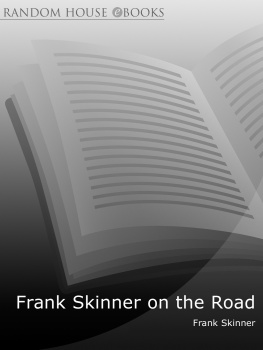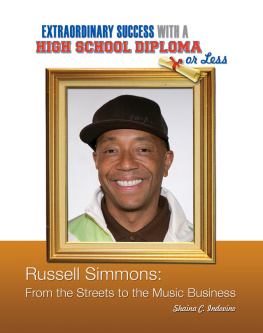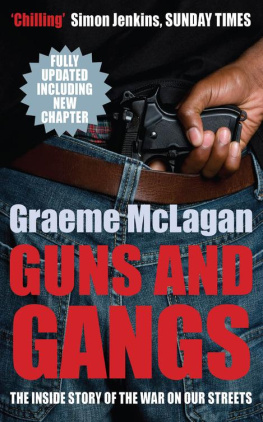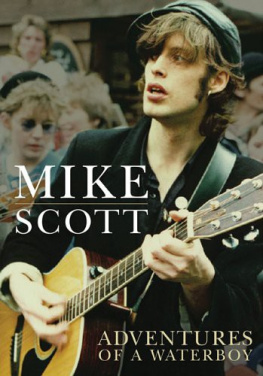
About the Book
This book is going to try and get as close as possible to the full story of what informed the noise of The Streets. Obviously thats
something I should be fairly well-qualified to know about, and Im going to be as honest as the publishers lawyers will allow.
With the 2001 release of The Streets debut single Has It Come To This? the landscape of British popular music changed forever.
No longer did homegrown rappers have to anxiously defer to transatlantic influences. Mike Skinners witty, self-deprecating sagas
of late-night kebab shops and skunk-fuelled Playstation sessions showed how much you could achieve simply by speaking in your
own voice.
In this thoroughly modern memoir, the man the Guardian once dubbed half Dostoevsky ... half Samuel Pepys tells a freewheeling,
funny and fearlessly honest tale of Birmingham and London, ecstasy and epilepsy, Twitter-fear and Spectrum joysticks, spread
betting and growing up. He writes of his musical inspirations, role models and rivals, the craft of songwriting and reflects on the
successes and failures of the decade-long journey of The Streets.
Contents
Cover
About the Book
Title Page
Introduction
I: The Inciting Event: Original Pirate Material
Im not a very good rapper
There was something about taking stuff apart and putting it back together
I always wanted to do music it was either that or death
I dont think they thought the music industry had any kind of commercial future
Now there was an imbalance of achievement
II: Climax: A Grand Dont Come For Free
Essentially, they were hipsters
I took their favourable reaction as evidence of my own powerlessness
Effectively, what we did was slap my personality on top of his database
For me it was the musical equivalent of the moment in Being John Malkovich when John Malkovich goes through
the portal into his own brain
I worked at Granada Services, Frankley
III: Crisis: The Hardest Way To Make An Easy Living
We bought Mum and Dad a place in Barnet
I know plenty of people who smoked brown and were fine I suppose Im one of them
I was fully living the dream
The final amount as far as Warners were concerned was probably nearer a million
With anti-heroes film noir-type people you think of them as being bad guys, but theyre always better than
their surroundings
IV: Progressive Complications: Everything Is Borrowed
I was never anything more than an outpatient
Tim ideally wants to be managing Bruce Springsteen or The Beatles
Product placement is just an extension of a visual metaphor
The donk of diminishing returns
Chris and Gwyneth were the exception that proved the rule
V: Resolution: Computers And Blues
If they stick with me till album number five, they know they can get a Greatest Hits out of it
Then The Streets was going to come to an end
I hope Im not going to sound like Alanis Morissette if I describe this as ironic
You dont really have to stay in touch, because theyre going to be there anyway
The cliff-hanger at the end of the first one was that Trevor Eve dies, although it turns out hes not really dead
Picture Section
Index
Copyright

Introduction
A song is a moment in time, but the time it takes to write that song might be many moments when opposing emotions are felt. Ive
talked about this a lot while taking cocaine on tour buses, but its just as much of a bugbear for me when Im not under the influence.
If theres one illusion Id like this book to lay to rest, its the idea that a particular song or rap or whatever expresses one
emotion and therefore the person who made it was necessarily feeling nothing but that emotion throughout its making. I dont know
why setting everyone straight on this point has become so important to me over the years. Maybe Ill find out by the end of the last
chapter.
Im here to tell you that its just a load of numbers in a machine
People tend to think that because a piece of music inspires them to feel a particular way, that emotion must somehow be
inherent in it. Empirically, that is not the case.
All of us would appreciate that its not possible for a digital file resting on the internet to have a soul, yet in the end that is kind
of what it boils down to. Im here to tell you that its just a load of numbers in a machine, but some of those numbers work better
than others. And I have no doubt that Richard Dawkins would agree with me that its in the exact nature of those equations that the
true mystery lies.
Because so many more people experience music as consumers than as creators, these two very different processes making
music, and listening to it tend to get transposed, as if theyre mirror images of each other. Obviously theres an emotional element
that goes into the song on the part of the person or people who write and perform it, and theres an emotion that comes out in terms
of the reaction it inspires in the listener. But where the listening experience is basically one thing, what youre putting into a song
when youre writing it is a lot more diffuse and all over the shop.
There might be an emotion that gives you the original idea, but you make all sorts of decisions for all kinds of reasons along
the way in terms of how to flesh that idea out. Some of those decisions maybe most, or even all, of them will end up being
mistakes, but those mistakes might end up being the things about the song that people like best. So you shouldnt try not to make
them.
A story works the same way as a song in that regard. There can be many reasons why a story got to be the way it was, but
once the storys written, thats it.
I dont know much about Mark Rothko, but I know what I like
When I consider a subject about which I am not knowledgeable say, modern art I realize that my ignorance of certain
artists probably means that the incredible authenticity they may have just goes over my head. I dont know much about Mark
Rothko, but I know what I like. And I also know where the vast majority of my modest allotment of Rothko knowledge came from:
a TV programme called The Power Of Art , presented by that cat who helped out with the royal wedding coverage, Simon Schama. It
was a really good show. He took one work of art a week, and went into the story of it.
By the story, I mean the melting pot of all aspects of humanity surrounding that piece of art the story of the artist, the story
of the individual work, the historical context, the art movement it was a part of The longer my own personal University of Life
thesis goes on, the more I realize that what you do or dont think about all of those things totally informs how you receive the art.
I used to think music was just sound, but now I know there is a lot of story in it as well. To take an obvious example, if
youve got four eighteen-year-olds playing fairly ordinary rock n roll, finding out whether they happen to be football hooligans
from Portsmouth or mountaineering buddies from public school will certainly inform how you receive the noise they make.
Im going to be as honest as the publishers lawyers will allow
This book is going to try and get as close as possible to the full story of what informed the noise of The Streets. Obviously
Next page
